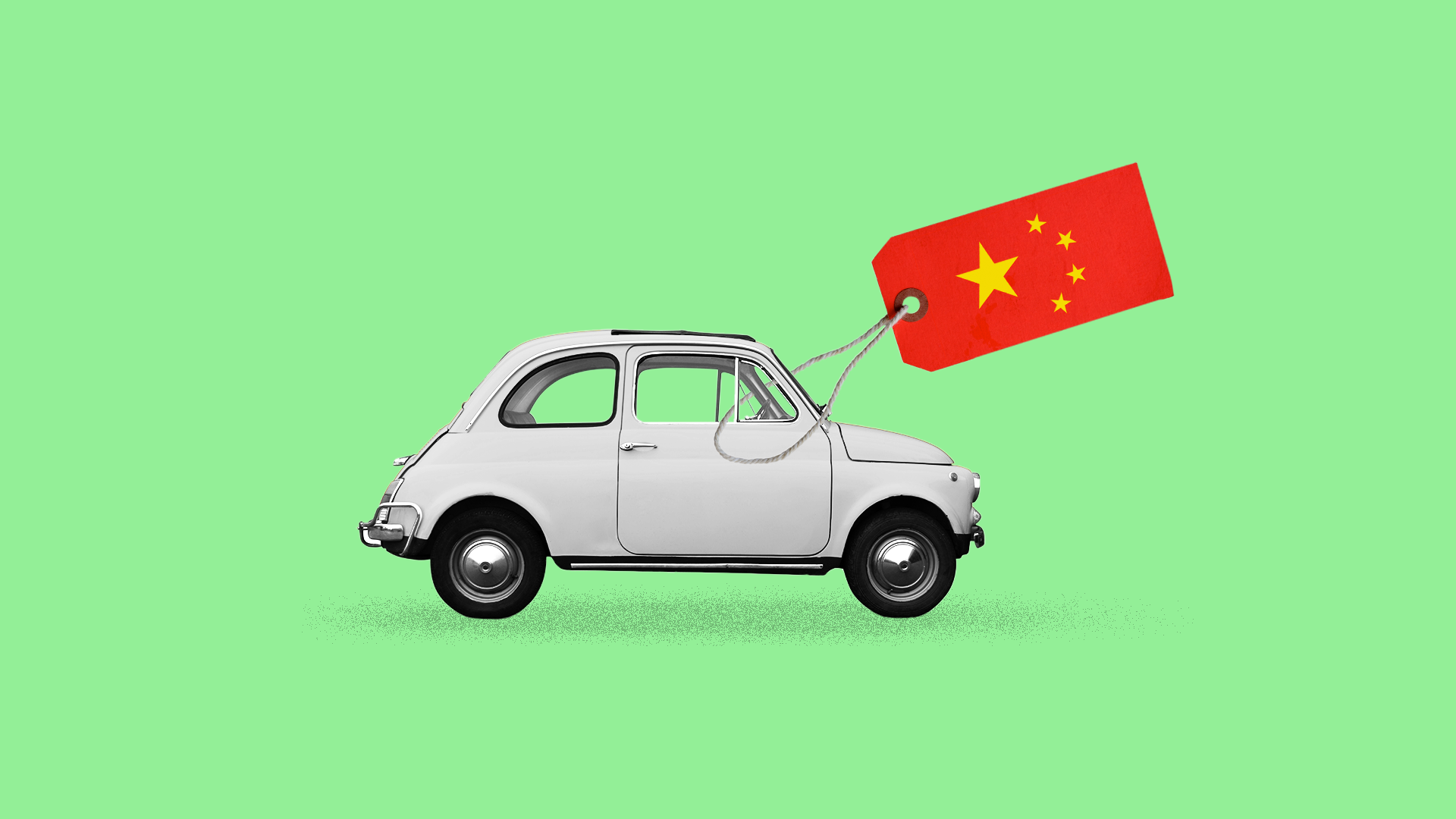China's looser rules may usher in a new era for EV and AV companies
Add Axios as your preferred source to
see more of our stories on Google.

Illustration: Aïda Amer/Axios
Tesla recently began construction on its first gigafactory in China, suggesting that foreign automakers may be eyeing new opportunities in China following the country's decision to dismantle its requirement that foreign automakers create joint ventures with Chinese firms to make and sell vehicles there.
The big picture: The rule relaxation, which applied to EVs immediately and will cover all vehicles by 2020, could increase incentives for EV and AV companies to develop and sell vehicles there. But removing the joint venture requirement doesn't remove all risks.
Background: The joint venture rule was intended to encourage a technology transfer that would benefit Chinese automakers, but research suggests that it backfired.
- Foreign automakers have brought older technologies to China and kept advanced vehicle technology development at home, leaving their Chinese partners (often state-owned enterprises) struggling to absorb new technology.
- Coinciding with the rule change, China recently reduced its import tariffs amid the trade war and rolled out new fuel economy standards and an EV sales mandate, further incentivizing global automakers.
What we’re watching: China’s EV market—the largest in the world—is currently almost entirely comprised of domestic Chinese brands.
- But following the rule relaxation, foreign firms, including AV start ups, may now be inclined to develop advanced vehicle technologies in China, which already has one of the world’s largest AV research and development communities, including tech giants like Baidu, Alibaba, and Tencent.
Yes, but: Although BMW, Audi, and Mercedes were all approved last year to test AVs in China, they have to do so through their joint ventures, as only EVs are currently exempt.
- Existing joint ventures have enormous fixed investments, such as manufacturing facilities and marketing channels, so automakers may not rush to divorce their Chinese partners. Parting ways could also raise issues around intellectual property.
And as with any advanced technology, there is concern that developing AV-related software in China could create a national security threat.
The bottom line: China’s reversal of a decades-old requirement could open the flood gates to foreign investment in advanced vehicle development in China, which could accelerate EV and AV technological progress, but with attendant risks.
John Paul Helveston is an Assistant Professor in Engineering Management and Systems Engineering at George Washington University.
